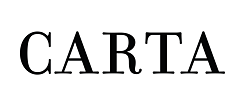Politics in the Digital Age The Zero-One Game – Politics as a Game

Politics is a serious business. It’s about money, power and resources. At present, and this is new in terms of cultural history, even our existence itself is at stake, i.e. the question of whether and how long people will still be able to live on this planet. At the same time, however, in this digital age politics is mutating more and more into a game. Signs without meaning are plying a nefarious trade.
“If you carry out a lot of tests,” US President Donald Trump claimed in relation to the corona pandemic at an election campaign event in the summer of 2020, “you will find more cases. That’s why I told my people to test more slowly.” What cannot be presented as a number therefore does not exist or at least has no relevance. This self-empowerment of the king, however, is not new. Trump’s total narcissism has unleashed his will to be the designer of his own universe. At the same time, however, he embodies a zeitgeist, a political culture, that has created a substantial gap between politically useful signs and reality.
While his Highness’s countless tweets and assertions were able to incite arguments, while people were still debating what the issue was really about, Trump managed to reach the end of the path towards complete pretence. He makes no secret of the fact that politically useful numbers depend on the counting and not on reality. At this point it makes no sense to compare Trump’s statements with any form of reality. He has pocketed reality for himself.
Politics in the Realm of Real-Time Media
It was Trump who finally made it clear that the business of politics has now largely entered the realm of real-time media, it has become digital. The Zero-One Society as a technical structure and culture is running rampant. There has of course always been some form of arbitrary emphasis, distortion or lies. In a sense, this has become second nature in the world of politics. These days, however, lies and inventions no longer have to be kept hidden; even Andreas Scheuer (CSU transport minister said to have lied about the planned autobahn toll charge) was still in office in July 2020. The lies and inventions develop their effect and are immediately metabolised in the high-speed business of the media, i.e. the information society. Their status as a distortion of the truth or a made-up assertion is drowned out in the mass of fictionalisations. One story comes on top of the next, and what becomes relevant is hardly decided by reality. What is true and what is not true is no longer relevant in terms of power politics. “Nowadays abstraction no longer works according to the pattern of the map [or] the concept,” wrote the French philosopher and media theorist, Jean Baudrillard back in the 1980s. “It much prefers to make use of various models to generate a form of reality without origin” that is, “a hyperreality.” In the realm of digital politics, reality seems to have lost its right of veto.
One story comes on top of the next, and what becomes relevant is hardly decided by reality.
Robert Feustel
We are familiar with wild assertions and vast exaggerations from other contexts, too. After riots in Stuttgart, political players outdid each other with superlatives, there was talk of a “Collapse of German Civilization” or a “Federal Night of Broken Glass”. If we are to believe the police unions and some interior ministers, then violence against the police is reaching new all-time highs. For media spin and the disposition of some police officers, they even considered suing a journalist who had adopted the wrong tone. The lawsuit would have been so ridiculous and while it was clear to all involved that the process was only good for unsettling the general public, it nevertheless worked – for a while everyone was talking about the Minister of the Interior, Horst Seehofer, and his attempt to silence the taz newspaper.
Apparently, it’s not about classifying or working through events, asking the right questions, learning from mistakes or even doing things differently in the future. Instead, any old, almost arbitrary occasion is used to showcase increasingly drastic terms and images in order to generate further attention. The inclined audience will relish it.
Who Rattles the Loudest?
This battle for excitement and the inflation of superlatives is part of a gamification process, as Arne Vogelgesang precisely explained under the title “Let’s Play Info War” at the Chaos Computer Club in 2019. He was actually more concerned with real gamers and right-wing whackos. Politics in general is, however, mutating into a game of digital signs in many places, which gives rise to a whole new set of questions: Who can spread their own narrative widely and raise it sooner or later to the rank of at least a perceived truth? Who rattles the loudest, finds sensationalist words and therefore forces everyone else to react to the spin? Trump, undoubtedly the world champion at this game, only lost ground when the reality of the virus took its toll on him.
An example – for some time now, there has been a bitter war of interpretation about whether the police as an institution is structurally racist and overly militarised. At the same time, the legitimate question arises whether executive power can still be controlled on the street. Or is it, as the alleged figures supplied by the Federal Ministry of the Interior suggest, more and more the victim of increasingly violent attacks? This question can certainly be answered, but players close to the police leave no stone unturned when it comes to stylising their own ranks as victims. And because the media circulation of news has made the ability to cope with pressure a minor matter, false superlatives start gaining currency. The tone is set and the other side is forced to act. This round goes to the apologists of a supposedly infallible police, the info war or the digital game of symbols takes its course and detaches itself from reality.
What Should Come After the Superlative?
In contrast to actual computer games such as Valorant or Fortnight, this game with the political public has a retroactive effect on reality. After one round, the next round doesn’t just follow and everyone starts again at the same point. When Baudrillard speaks of hyperreal, he does not mean disengaged, disconnected or detached. The game is not just imitative, double the world or create a new one. It is more a case of repercussions being described, i.e. real effects that come from an overheated media business. The examples pile up: climate change has slipped away from the realm of politics, not least because radical free-marketeers and notorious reactionaries have in part succeeded in spreading the story that climate change does not exist. The democratic control of the police is denigrated as senseless or even as subversive distrust (as if blind trust in state power had ever been democratic or even liberal.) Here too, offensives in the information war play their role.
All of this leads to erosion processes. Some of the people no longer believe anything that is being so drastically peddled. Not even the stories of the impending climate catastrophe, which can be perceived as just one superlative among many. Others take refuge in apocalyptic fantasies. The question is what should come after the superlative. And this notorious confirmation bias has yielded some peculiar results, because from this information overkill everyone can pick out what fits in with their own political mindset. That is why it may be wise to design a new type of reality check. Perhaps we should think more often about which action, which public communication has real effects? What, on the other hand, contributes to the info war? Where is digital counterfire important? After all, not every round in digital combat is useless. However, our view of reality should not fall even more by the wayside.

0 Comments